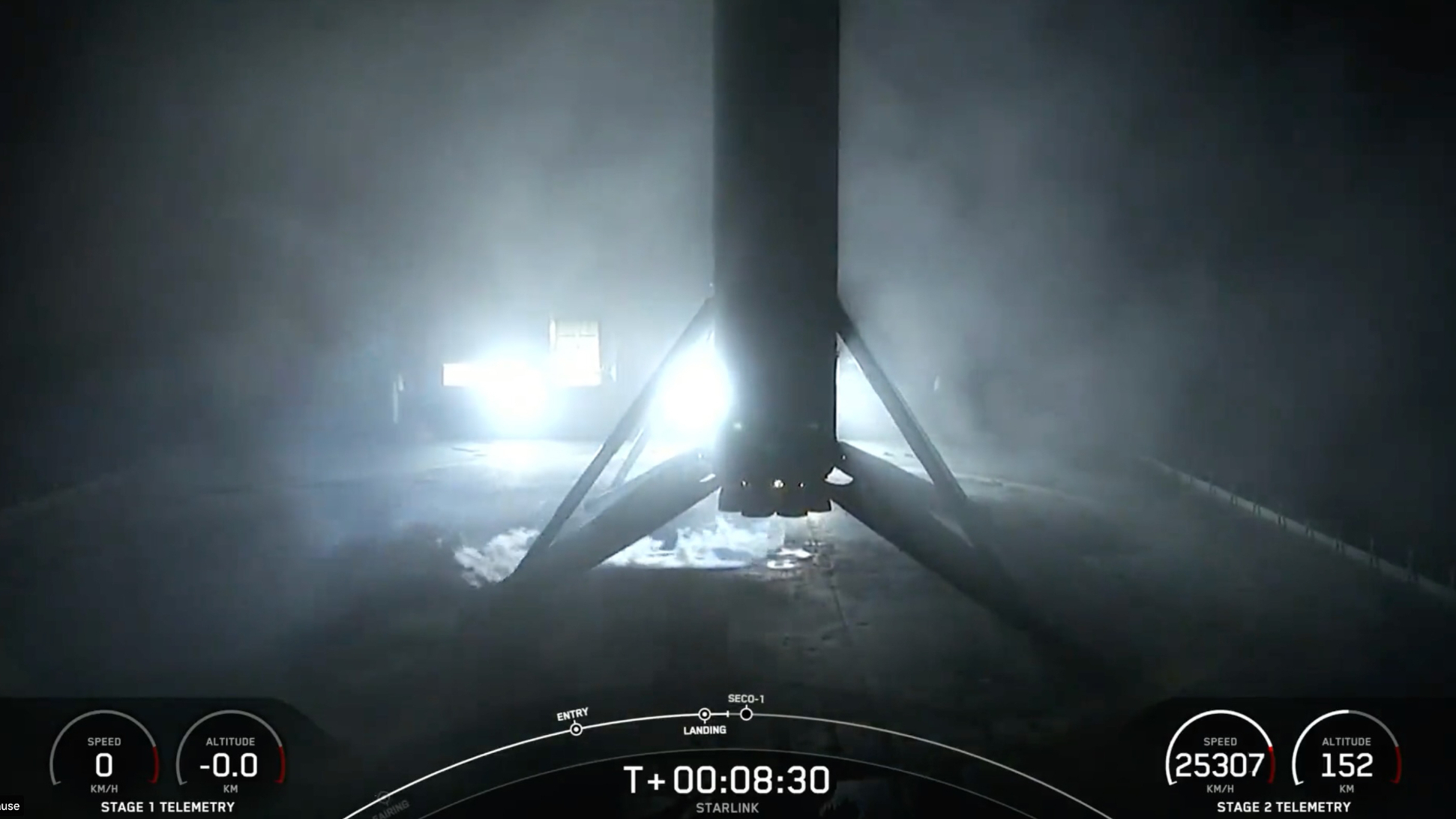A SpaceX Falcon 9 rocket launched for a record-tying 17th time on Saturday night (Sept. 23).
The Falcon 9, topped with 22 of the company's Starlink internet satellites, lifted off from Cape Canaveral Space Force Station in Florida Saturday at 11:38 p.m. EDT (0338 GMT on Sept. 24).
The rocket's first stage came back to Earth as planned, landing on a SpaceX drone ship at sea about 8.5 minutes after launch.
Related: Starlink satellite train: How to see and track it in the night sky

It was the 17th liftoff and landing for this Falcon 9 first stage, according to a SpaceX mission description. That tied the company's reuse record, set just four days earlier by a different Falcon 9 on another Starlink launch.
The 22 Starlink satellites, meanwhile, deployed from the Falcon 9's upper stage about 65 minutes after launch.
Starlink is SpaceX's internet megaconstellation, which provides service to customers around the world.
Get the Space.com Newsletter
Breaking space news, the latest updates on rocket launches, skywatching events and more!
Starlink currently consists of more than 4,750 operational satellites, and that number will continue to grow far into the future. SpaceX has approval to launch 12,000 of the broadband craft and has applied for permission for another 30,000 on top of that.
Editor's note: This story was updated at 1 a.m. EDT on Sept. 24 with news of successful launch, rocket landing and satellite deployment.
Join our Space Forums to keep talking space on the latest missions, night sky and more! And if you have a news tip, correction or comment, let us know at: community@space.com.

Michael Wall is a Senior Space Writer with Space.com and joined the team in 2010. He primarily covers exoplanets, spaceflight and military space, but has been known to dabble in the space art beat. His book about the search for alien life, "Out There," was published on Nov. 13, 2018. Before becoming a science writer, Michael worked as a herpetologist and wildlife biologist. He has a Ph.D. in evolutionary biology from the University of Sydney, Australia, a bachelor's degree from the University of Arizona, and a graduate certificate in science writing from the University of California, Santa Cruz. To find out what his latest project is, you can follow Michael on Twitter.









